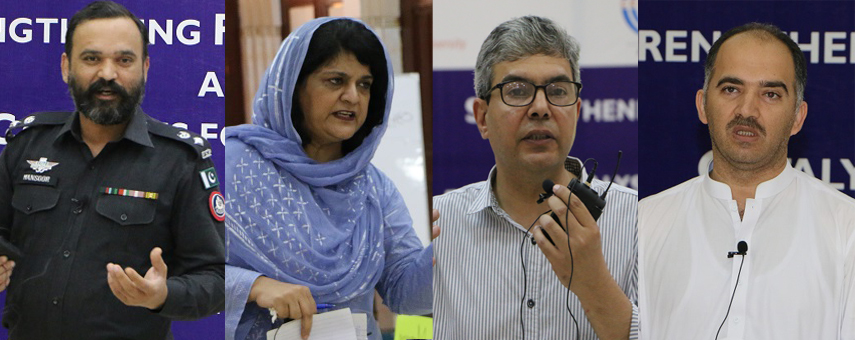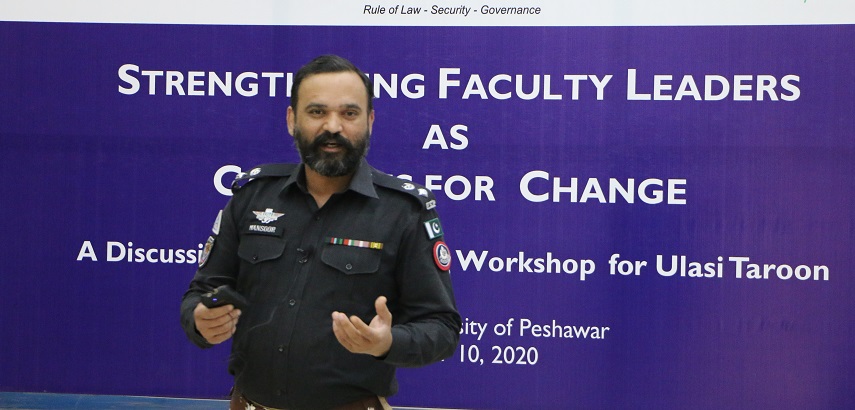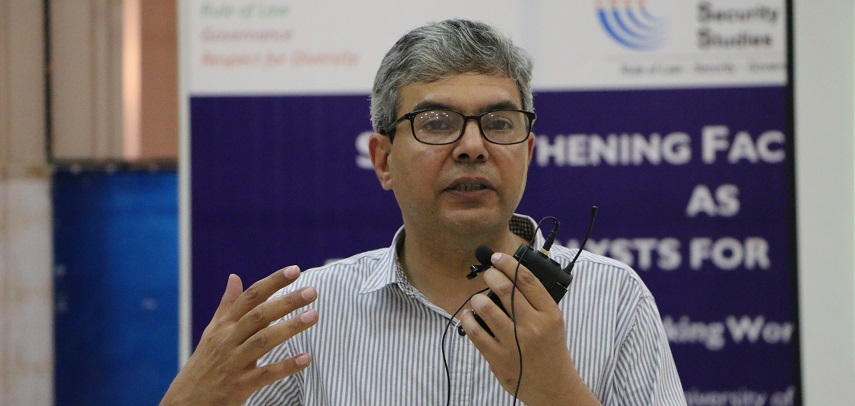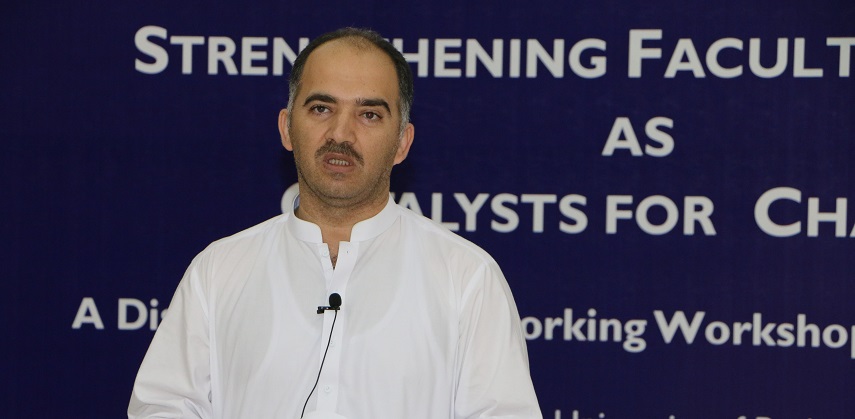Everyone is equally subject to law regardless of their social, political or economic background, as a matter of rule of law. Rule of law also refers to the extent by which laws can influence individual and institutional behavior.
These remarks were made by the Senior Superintendent of Police (Operations), Peshawar, Mr. Mansoor Aman during a discussion and networking workshop on social cohesion titled “Strengthening Faculty Leaders as Catalysts for Change”, held by the Center for Research and Security Studies (CRSS) as part of its youth leadership development initiative Ulasi Taroon, at University of Peshawar.
He said that the supremacy of state law is mainly because of its inclusive and universal nature where it duly considers the public aspirations and values. Therefore, inclusive policy making is critical to rule of law and requires absolute consideration of the cultural ethos and traditions, so that it acts as a source of cohesion instead of polarization. Discrimination through selective justice is not only contrary to rule of law but also detrimental to social cohesion; disintegrating the society. Ideally, there should be no exceptions in law, and everyone should be treated equally. Unequal treatment of law with a certain group or individual takes a negative toll on the state of rule of law. Clash of culture/ traditions and codified law only leads to conflict and weakens social cohesion, just like the clash of social order and social contract.
Though citizens are entitled to certain freedoms as their fundamental rights enshrined in the constitution, however, individual freedoms that interfere with others’ rights and freedoms are contrary to rule of law. Rule of law requires law that not only regulates individual behavior but also the institutional behaviors and nudges them to observe their constitutional limits.
Dr. Shuja Ahmad, Chairman, Department of Philosophy, University of Peshawar noted that citizens’ access to information is one of the prerequisites to cultivate critical thinking in the society, because sometimes the boundaries of our thinking depend upon of the information available to us.
Critical thinking is about using logic and critical inquiry to gather and connect the available information and draw inferences. In this process, an argument is considered as an expression of reasoning in words. Making arguments with reasoning devoid of logic and critical thinking represents bad reasoning and flaw in an argument means flaw in the reasoning and thinking. Training in logic and critical thinking enables us to construct and objectively evaluate arguments, differentiate good reasoning from bad reasoning, identify relevance of ideas, and think correctly and clearly. With this skillset, not only just others but one also starts reflecting on the justification of ones’ own ideas, theories, and values.
It is also the best and most democratic way to get someone to come around to your point of view i.e. through making good arguments and dialogue instead of forcefully imposing your views on others. Criticism does not literally mean to criticize; it is about constructive feedback while being considerate of all the related aspects and objectively looking at the issue through different perspectives. As seen in the world, the mindset change with critical thinking skills at the core is most crucial to the socio-political and economic progress, and democratic development. Only critically thinking nations can uphold rule of law and resist tyranny and arbitrary use of power.
Dr. Jamil Ahmad Chitrali, Institute of Peace and Conflict Studies, University of Peshawar, noted that social cohesion can be imagined as a human body whose organs complement one another to function properly. Similarly, each segment of the society contributes to cultivate critical social connections key to social cohesion, where academia represented by teacher leaders is considered one of the most crucial segments in this regard.
To promote the messaging on peace and harmony among youth, the teachers should lead with inspiring examples as role models for the future leaders. They have access to such a wide cross-section of nation’s youth and thus, use this opportunity to develop a much-needed social capital for development and a more connected future. They cognizance of the criticality of core constitutional values for peace and cohesion is extremely important to create society’s stakes for rule of law.
Ms. Shagufta Khalique, Educationist and Lead Trainer, Ulasi Taroon, noted that peace, conflict and resilience are both inter-connected and inter-dependent. Equipping youth with the conflict resolution skills best serves as an inherent communal mechanism to prevent and resolve conflicts. Acceptance and cooperation are like muscles which are strengthened by regular practice. Teacher leaders can act as catalysts in a way that they can hone the peacebuilding potential of the young and sow seeds for the most sustainable change.
Team Lead Ulasi Taroon, Mr. Malik Mustafa noted that every member of the state is a party to the social contract which not only means entitlements to certain rights and protections but also the responsibilities key to good citizenship. Educational leaders and civil society can act concertedly to remind the youth of these duties as an essentiality for social peace and cohesion.




